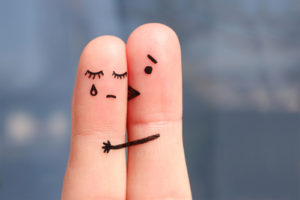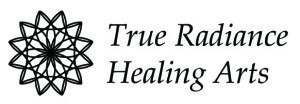How to Be Truly Helpful
 Many of us (dare I say, especially us women) want to be helpful. Understandably so – it feels good to offer support to a friend, family member, colleague, or even someone we’ve never met before.
Many of us (dare I say, especially us women) want to be helpful. Understandably so – it feels good to offer support to a friend, family member, colleague, or even someone we’ve never met before.
We like the feeling of knowing that we contributed to making someone else’s life better or easier, especially if they are facing a challenge.
In an emergency situation, we often act on instinct. We can jump in and respond in whatever way is needed without thinking about ourselves. Unless you work as an emergency responder, these situations are probably relatively rare in your life.
The more common situations where we want to help tend to be “chronic:” the partner who always seems to be stressed out, the friend who is in a bad relationship, the family member who keeps making poor decisions, the loved one who is dealing with an illness.
At times, our drive to be helpful causes us to become overly worried, run down, or overwhelmed. A habit of prioritizing helping others ahead of our own well-being can lead us to getting exhausted or even ill. Even in the short term, being highly concerned about someone else’s situation can ramp up our stress level. It can also cause us to offer our help – especially advice – in moments when it wasn’t sought out or desired.
How can we be truly helpful?
Take care of ourselves so that, when we want to offer assistance, we have the energy and emotional bandwidth to do so. It’s the classic airplane guidance: “Put your own oxygen mask on first before assisting those around you.” This may mean giving ourselves permission to put our own needs first when we need to. Ultimately, this benefits everyone else as well because it enables us to offer help from a place of being able to be fully present for them, focused on their needs.
Dr. Kristen Swanson, nurse researcher, found this core idea in her research on caring: “Caring is doing for another what they would do for themselves if it were possible.” There’s an unspoken idea here about not over-doing for others. I think of this often when I am with my aunt who has Alzheimer’s Disease. There are many things she can do for herself – and it’s important to her to do what she can without assistance.
For me to help her with something like carrying a bag in from the car, which she is still quite capable of doing, might help us to get in the door faster but it feels like an insult to her. There are many things she needs help with and that’s hard for her given her strong, independent spirit. It’s not helpful for me to do more for her than she needs.
Remember that people are capable. They have inner and outer resources they can draw on. It may be appropriate to help a loved one access and mobilize those resources for themselves. When we attempt to rescue others from an uncomfortable situation by giving unsolicited advice, it’s like saying that we don’t believe they can handle it.
Sometimes the most helpful thing we can do is to not help, when helping crosses over into enabling. This can be a hard place to come to within ourselves. We usually have judgments, perceiving their situation as bad. But who are we to know, really, what may come out of a seemingly tough experience. It is often in these challenging moments in our own lives that we discover our capacities and strengths.
If we are highly empathetic, we may take on someone else’s fears, pain, or other emotions. We may identify so strongly with them that we feel we are disregarding their suffering in enjoying our own life. But this isn’t beneficial for us or for them.
The only way they may ultimately benefit is from processing their feelings, learning from the situation, and going on to become a more expanded person through the experience. We may be able to support them by talking through an experience with them, but it doesn’t help for us to carry their feelings home with us.
We are able to be genuinely helpful when we respect the other person’s capabilities and when we give freely without expectation or attachment. We can truly be of service when we can remove our own judgments about the situation and mindfully assist in ways that won’t deeply deplete us over the long term.
With love,
Susan


